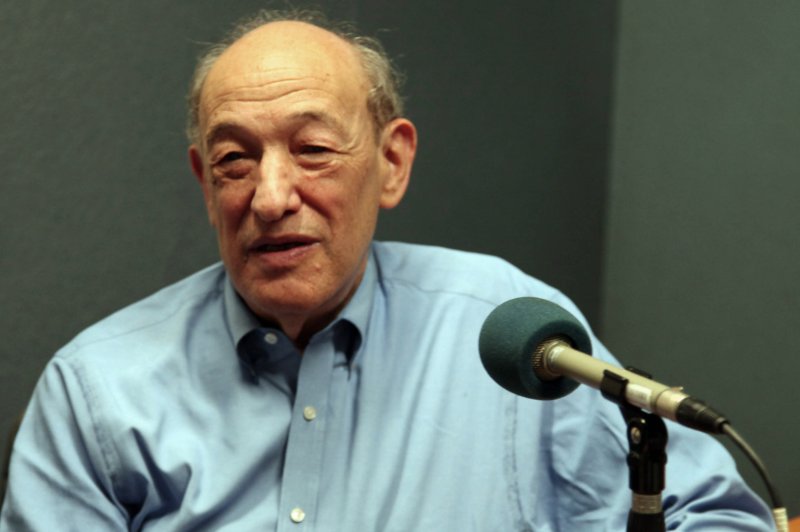Harvard University professor and scholar Ezra Vogel, who died Sunday, saw the “good in every person and every nation,” son Steven Vogel said Monday. File Photo by David Chang/ EPA
Dec. 21 (UPI) -- Ezra Vogel, a leading U.S. scholar at Harvard who witnessed first-hand East Asia's economic rise, died of complications from surgery Sunday, according to his family. He was 90.
Steven Vogel, a political scientist at the University of California, Berkeley, said in an obituary published Monday that his father saw the "good in every person and every nation" while working as an expert on China and Japan at Harvard's East Asian Research Center and as director of the Program on U.S.-Japan Relations at the Center for International Affairs.
Vogel retired from teaching in 2000.
Steven Vogel said his father "studied an extraordinary range of substantive topics in multiple countries from the perspectives of various academic disciplines," in a decades-long career that began with field research and language study in Japan in 1958.
Vogel, who was trained as a sociologist at Harvard, studied the Japanese family employing "intensive ethnographic research" with his first wife, Suzanne Hall Vogel. His study of six families resulted in various works, including Japan's New Middle Class: the Salary Man and his Family in a Tokyo Suburb, published in 1963.
The Harvard professor's other works, including Japan as Number One: Lessons for America published in 1979, became a bestseller in Japan. According to Kyodo News, Vogel maintained a lifelong friendship with the family of Japanese Empress Masako, who studied at Harvard between 1981 and 1985.
Vogel produced several books on China, studying the country closely in the '60s before the mainland was accessible to Americans, according to Steven Vogel. Ezra Vogel later published Deng Xiaoping and the Transformation of China in 2011.
Vogel also wrote about the Four Little Dragons, or the rapidly industrializing economies of South Korea, Taiwan, Hong Kong and Singapore.
In 2013, Vogel published The Park Chung Hee Era, a profile of the South Korean dictator's presidency from 1961 to 1979. In the book, Vogel credited Park with placing the South on the growth track that enabled it to later join the league of developed nations.
In 2015, Vogel was among 187 scholars urging then Prime Minister Shinzo Abe to address Japan's wartime past, including the issue of "comfort women."















